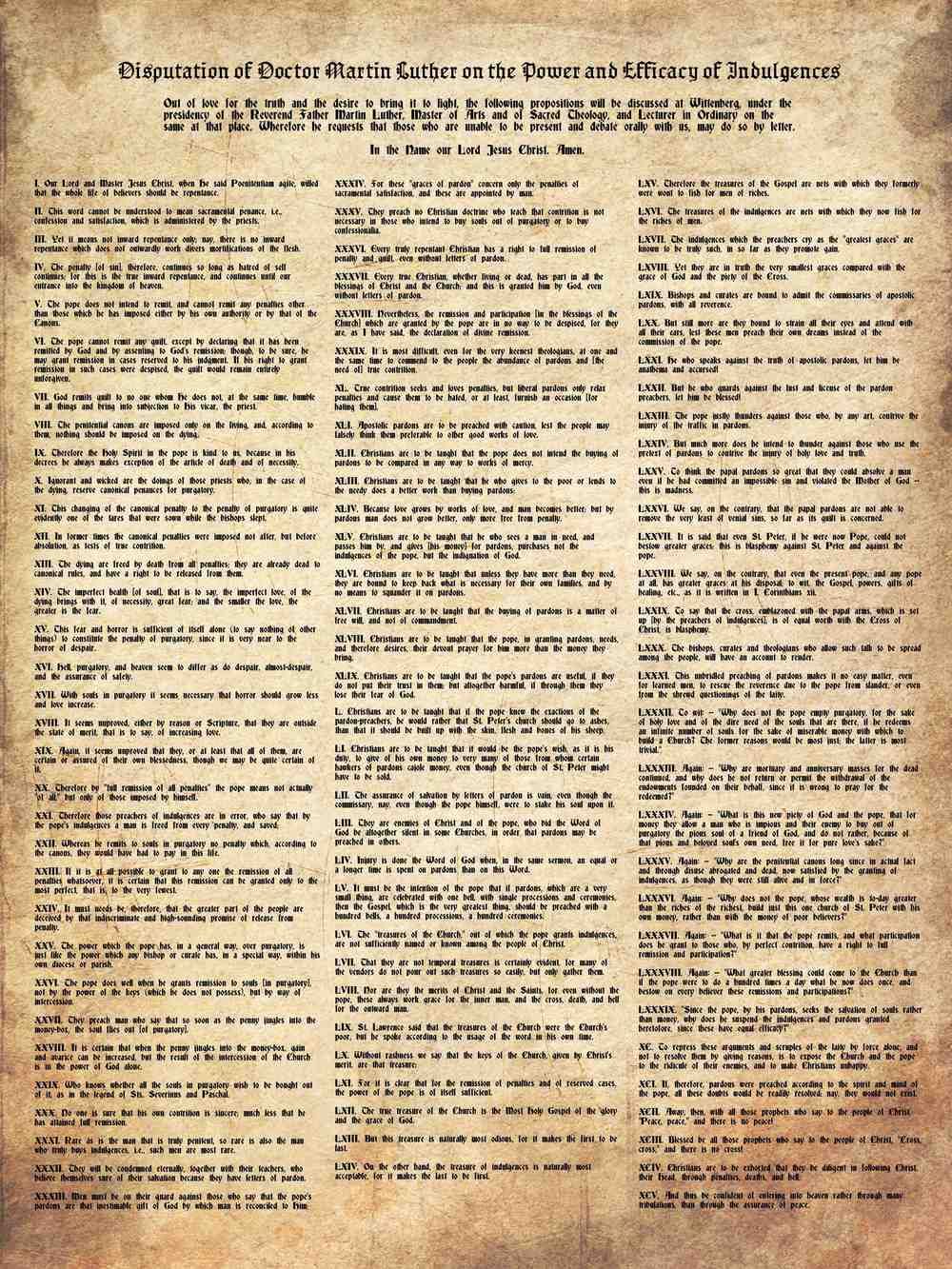LUTHER'S 95 POINT THESES
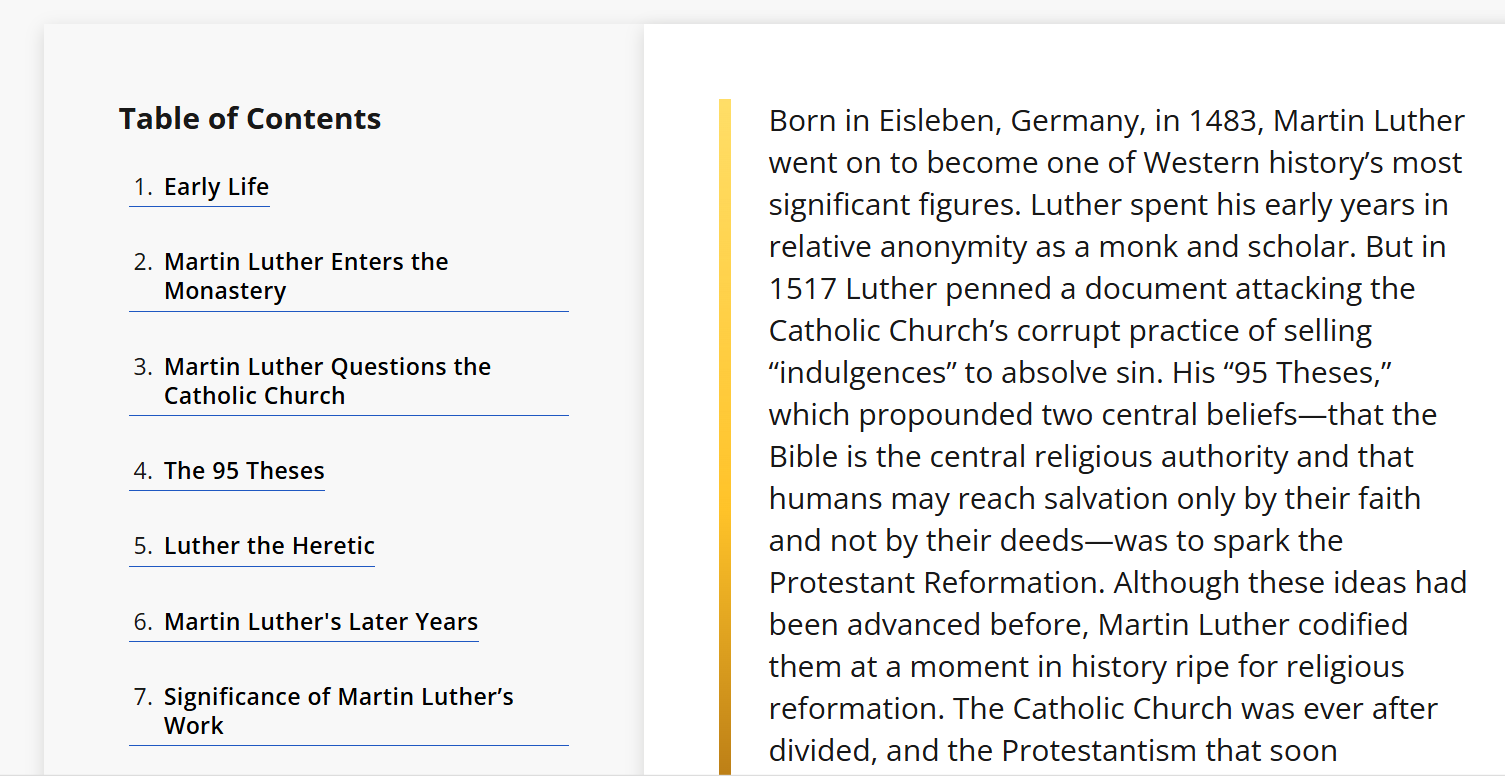
The 95 Theses, which would later become the foundation of the Protestant Reformation, were written in a remarkably humble and academic tone, questioning rather than accusing. The overall thrust of the document was nonetheless quite provocative. The first two of the theses contained Luther’s central idea, that God intended believers to seek repentance and that faith alone, and not deeds, would lead to salvation. The other 93 theses, a number of them directly criticizing the practice of indulgences, supported these first two.
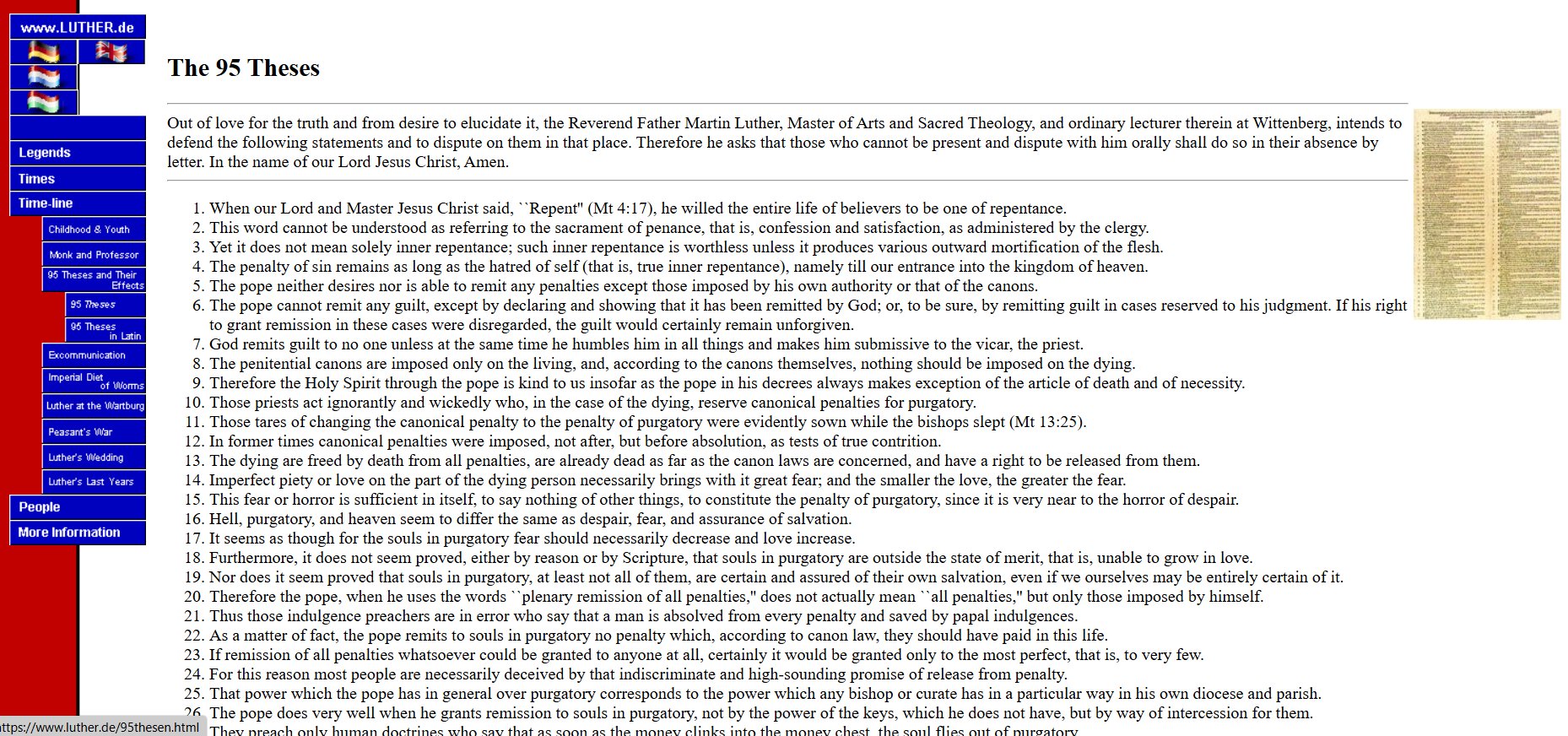
Out of love for the truth and from desire to elucidate it, the Reverend Father Martin Luther, Master of Arts and Sacred Theology, and ordinary lecturer therein at Wittenberg, intends to defend the following statements and to dispute on them in that place. Therefore he asks that those who cannot be present and dispute with him orally shall do so in their absence by letter. In the name of our Lord Jesus Christ, Amen.
- When our Lord and Master Jesus Christ said, ``Repent'' (Mt 4:17), he willed the entire life of believers to be one of repentance.
- This word cannot be understood as referring to the sacrament of penance, that is, confession and satisfaction, as administered by the clergy.
- Yet it does not mean solely inner repentance; such inner repentance is worthless unless it produces various outward mortification of the flesh.
- The penalty of sin remains as long as the hatred of self (that is, true inner repentance), namely till our entrance into the kingdom of heaven.
- The pope neither desires nor is able to remit any penalties except those imposed by his own authority or that of the canons.
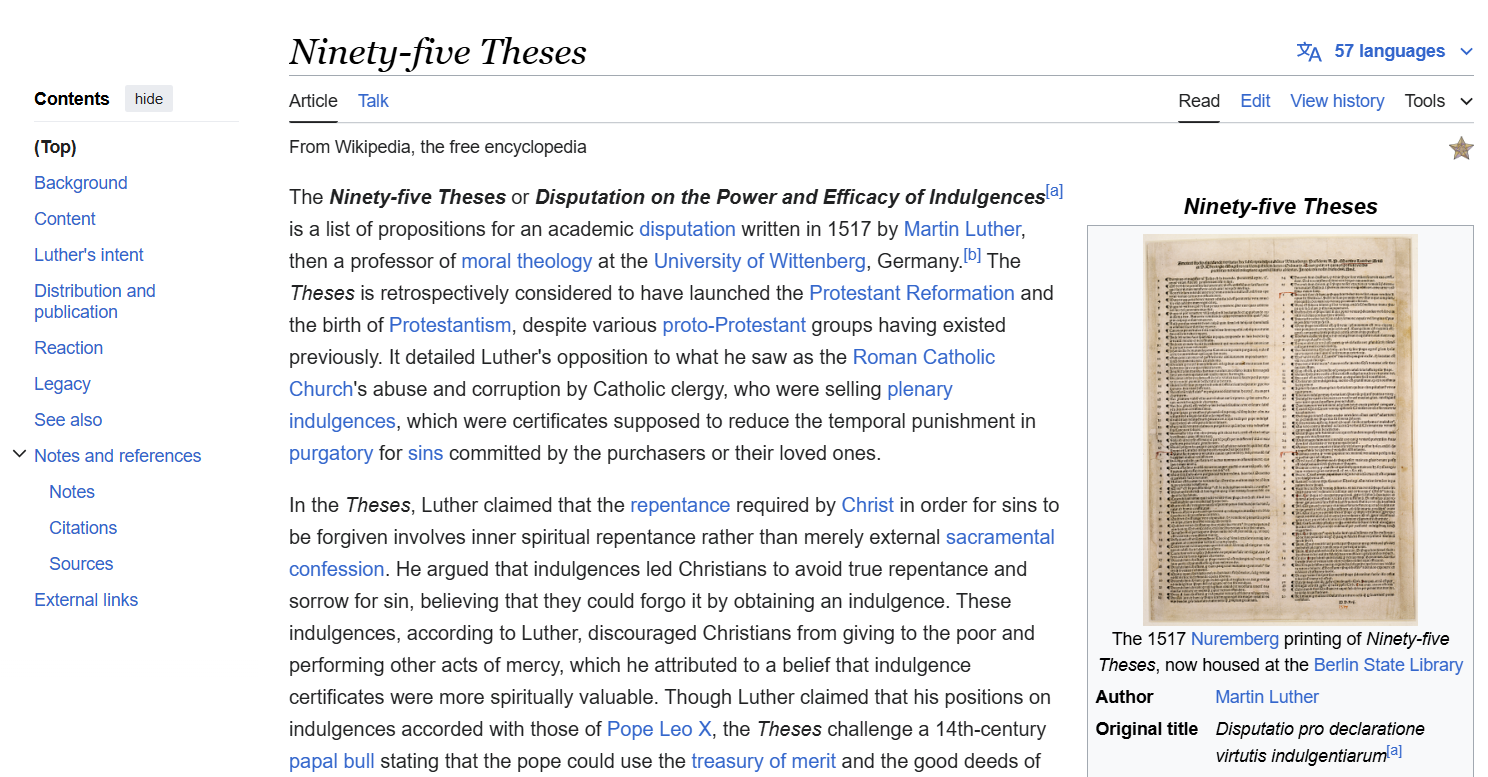
The Ninety-five Theses or Disputation on the Power and Efficacy of Indulgences[a] is a list of propositions for an academic disputation written in 1517 by Martin Luther, professor of moral theology at the University of Wittenberg, at the time controlled by the Electorate of Saxony. Retrospectively considered to signal the birth of Protestantism, the document advances Luther's positions against what he saw as the abuse of the practice of clergy selling plenary indulgences, which were certificates believed to reduce the temporal punishment in purgatory for sins committed by the purchasers or their loved ones. In the Theses, Luther claimed that the repentance required by Christ in order for sins to be forgiven involves inner spiritual repentance rather than merely external sacramental confession. He argued that indulgences led Christians to avoid true repentance and sorrow for sin, believing that they could forgo it by obtaining an indulgence. These indulgences, according to Luther, discouraged Christians from giving to the poor and performing other acts of mercy, which he attributed to a belief that indulgence certificates were more spiritually valuable (despite the fact that indulgences were granted for such actions). Though Luther claimed that his positions on indulgences accorded with those of the Pope, the Theses challenge a 14th-century papal bull stating that the pope could use the treasury of merit and the good deeds of past saints to forgive temporal punishment for sins. The Theses are framed as propositions to be argued in debate rather than necessarily representing Luther's opinions, but Luther later clarified his views in the Explanations of the Disputation Concerning the Value of Indulgences
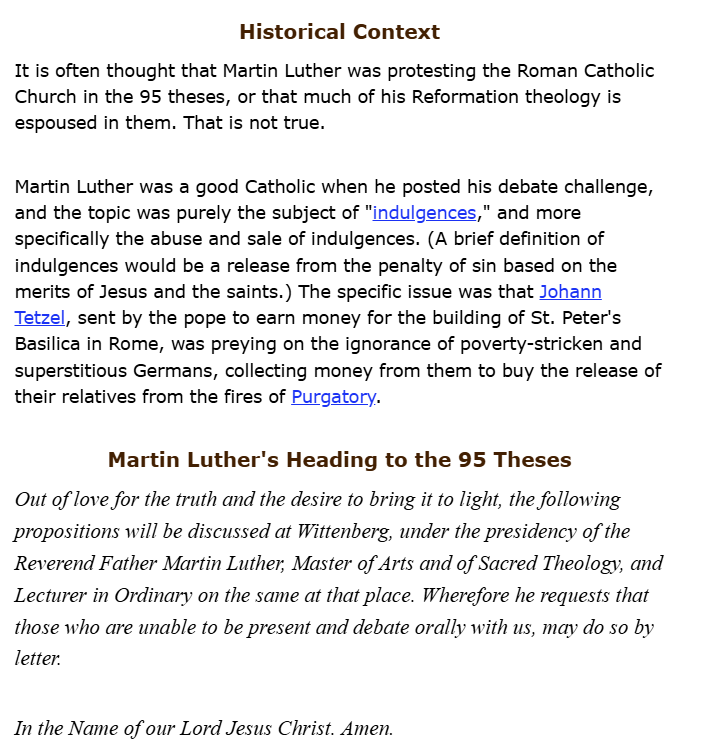
.Historical Context
It is often thought that Martin Luther was protesting the Roman Catholic Church in the 95 theses, or that much of his Reformation theology is espoused in them. That is not true.
Martin Luther was a good Catholic when he posted his debate challenge, and the topic was purely the subject of "indulgences," and more specifically the abuse and sale of indulgences. (A brief definition of indulgences would be a release from the penalty of sin based on the merits of Jesus and the saints.) The specific issue was that Johann Tetzel, sent by the pope to earn money for the building of St. Peter's Basilica in Rome, was preying on the ignorance of poverty-stricken and superstitious Germans, collecting money from them to buy the release of their relatives from the fires of Purgatory.
